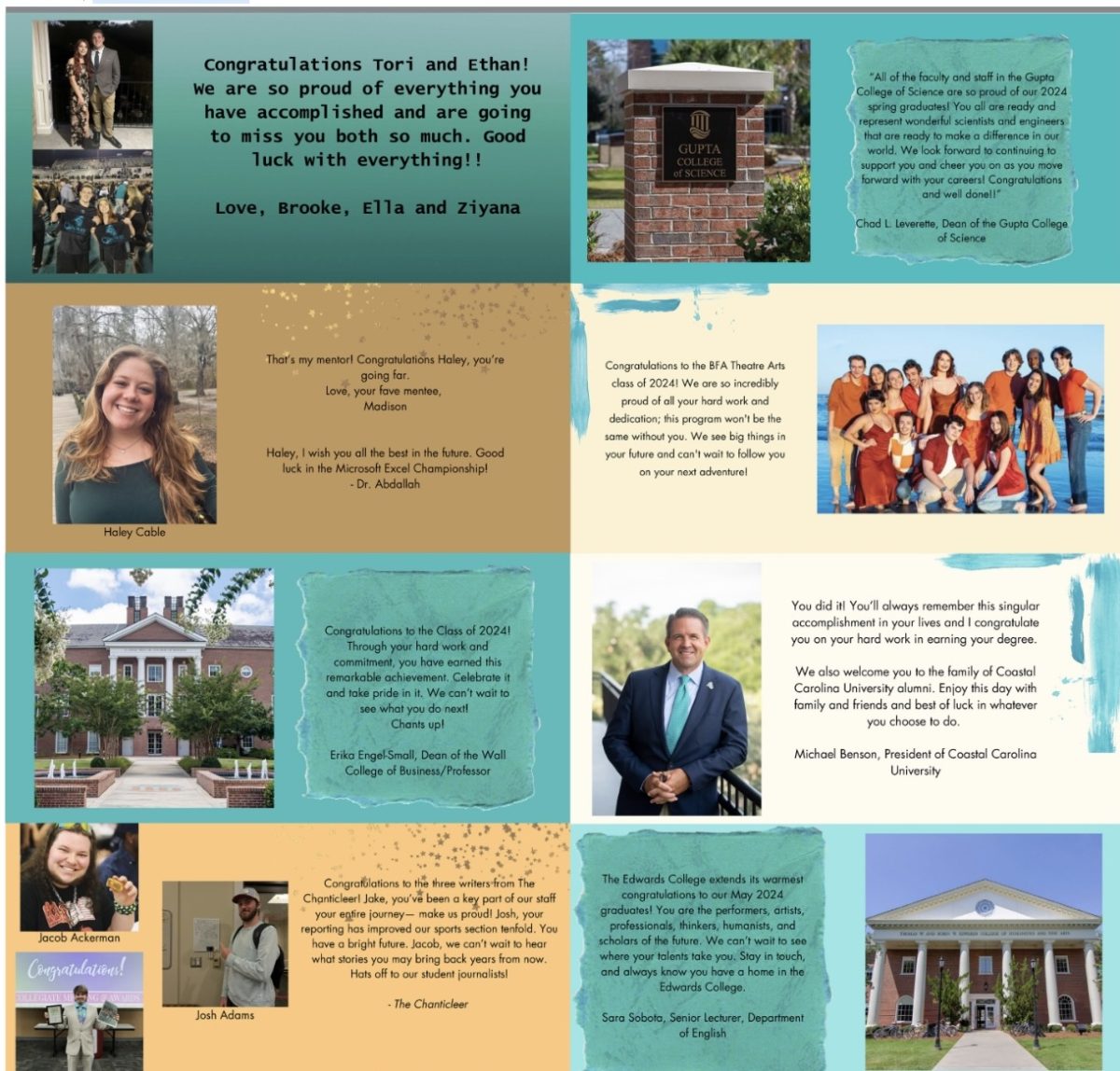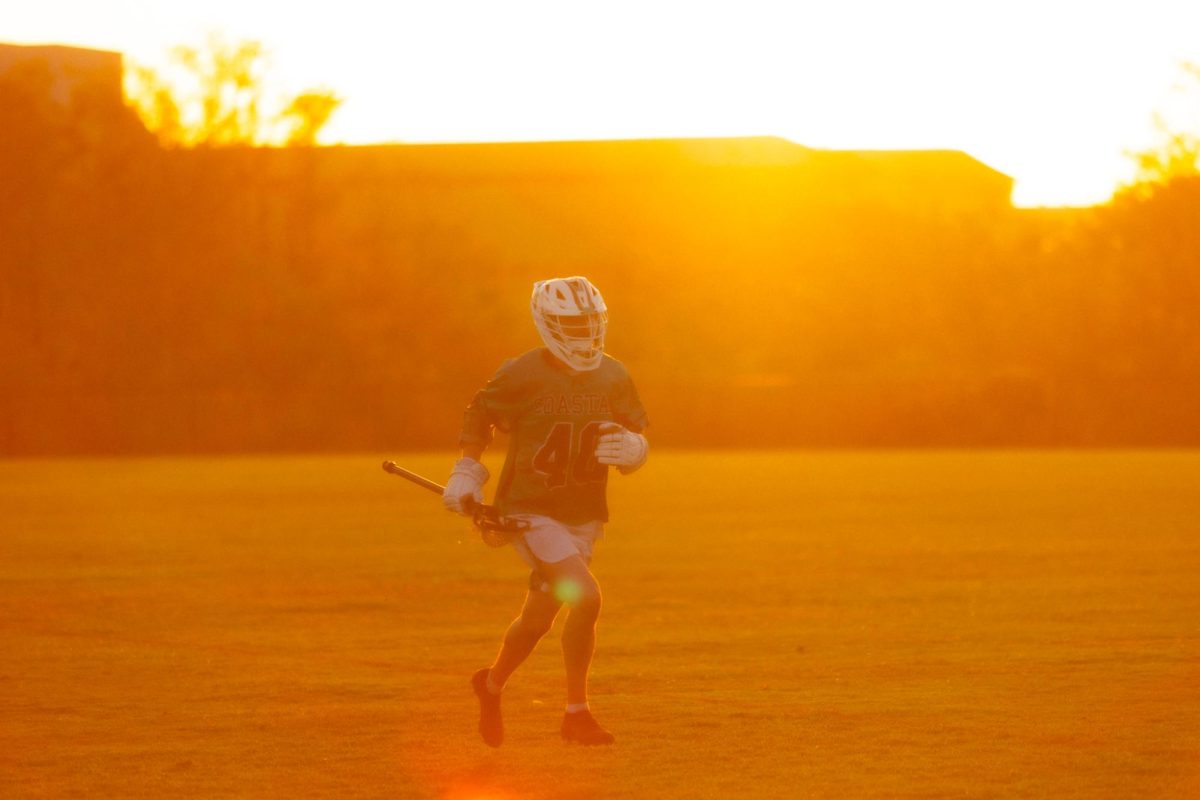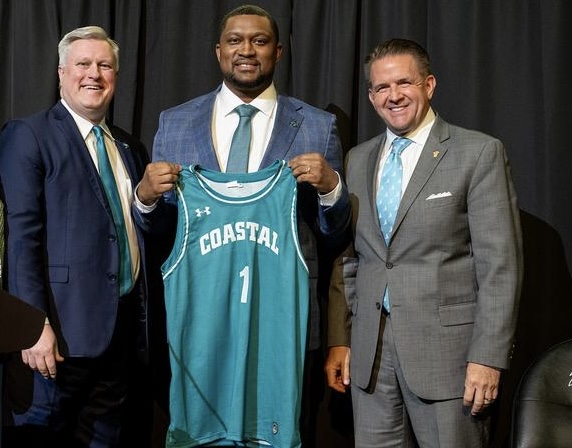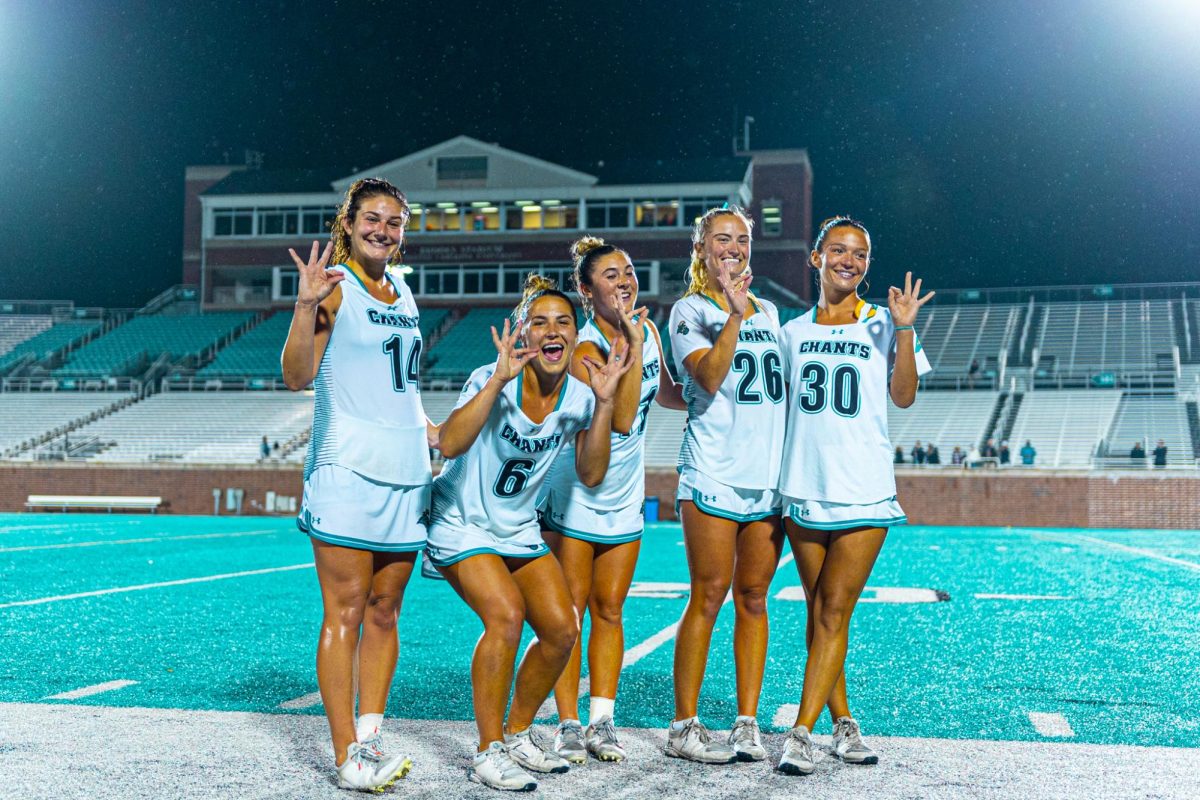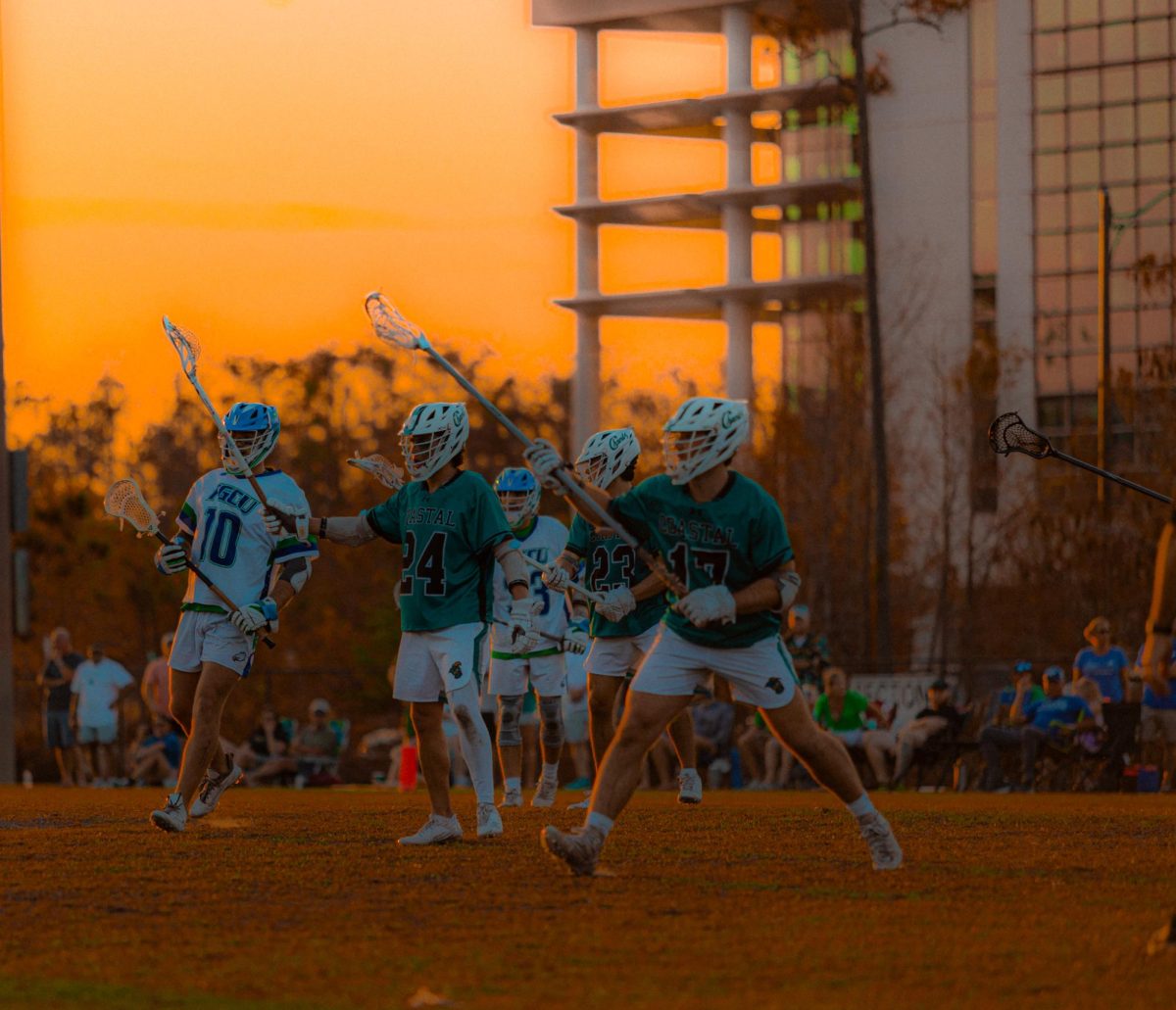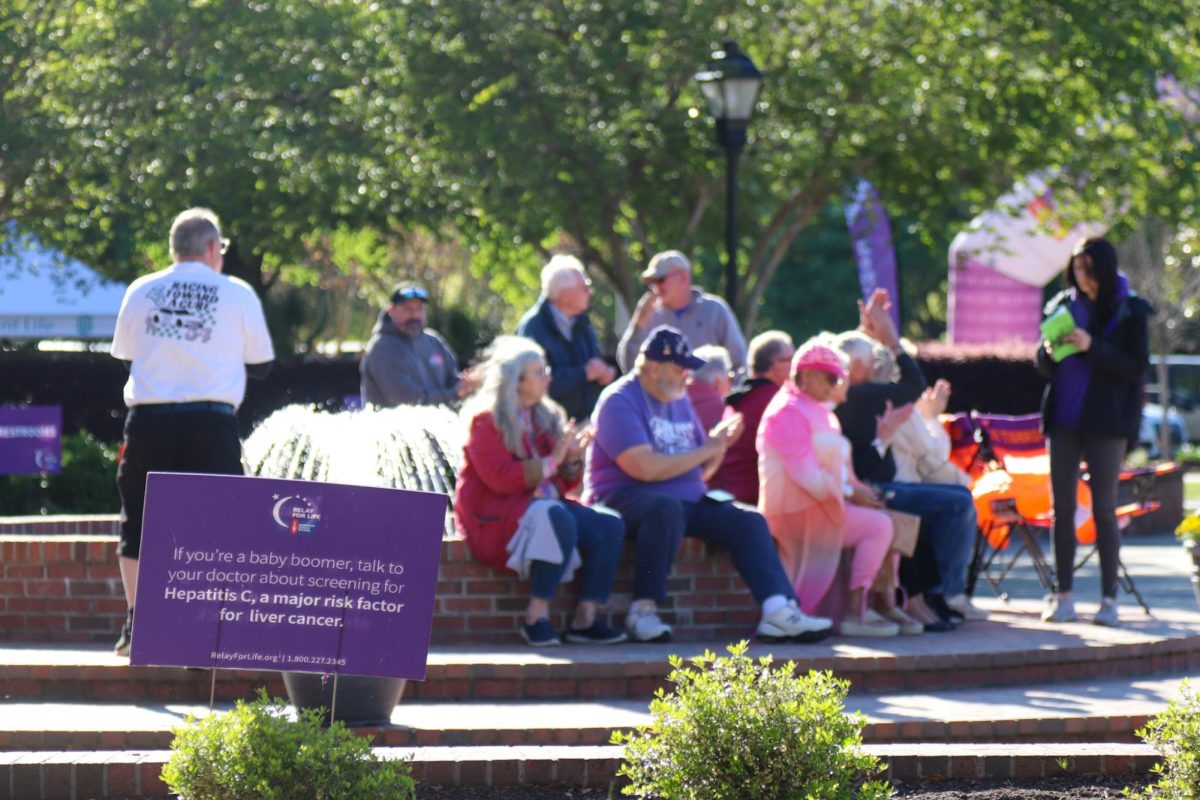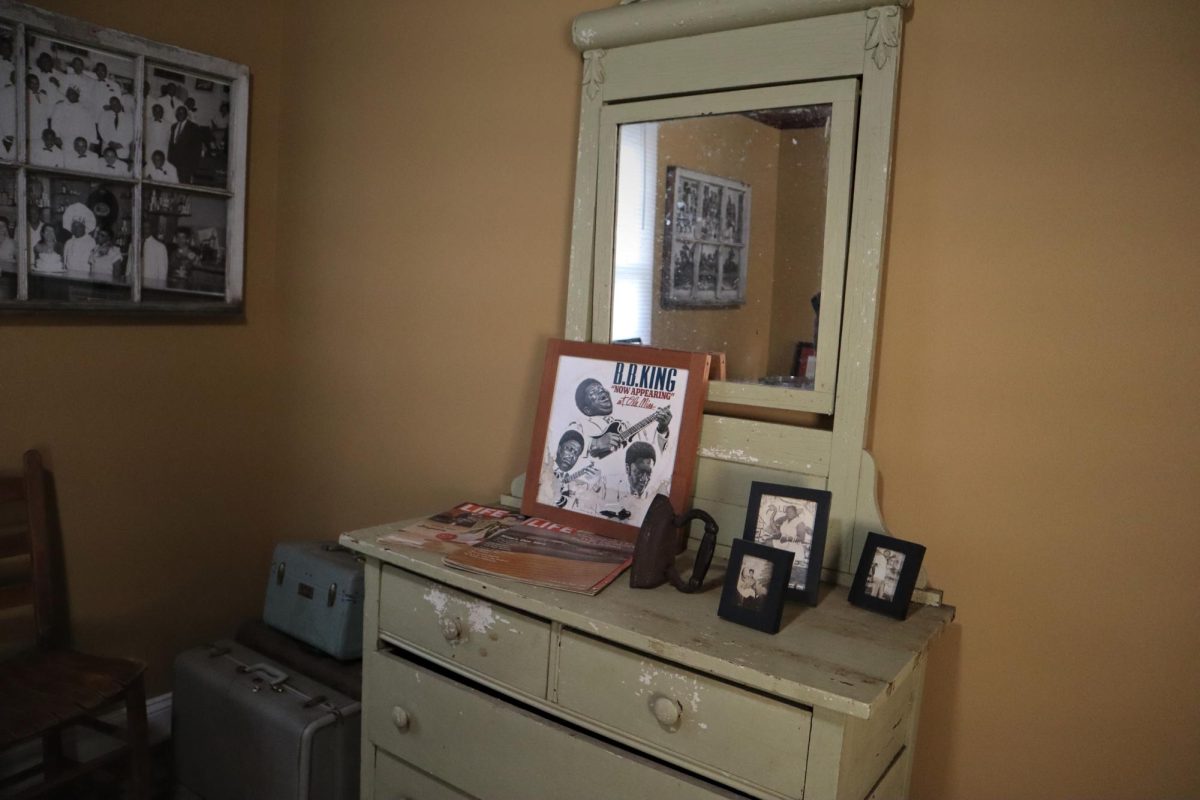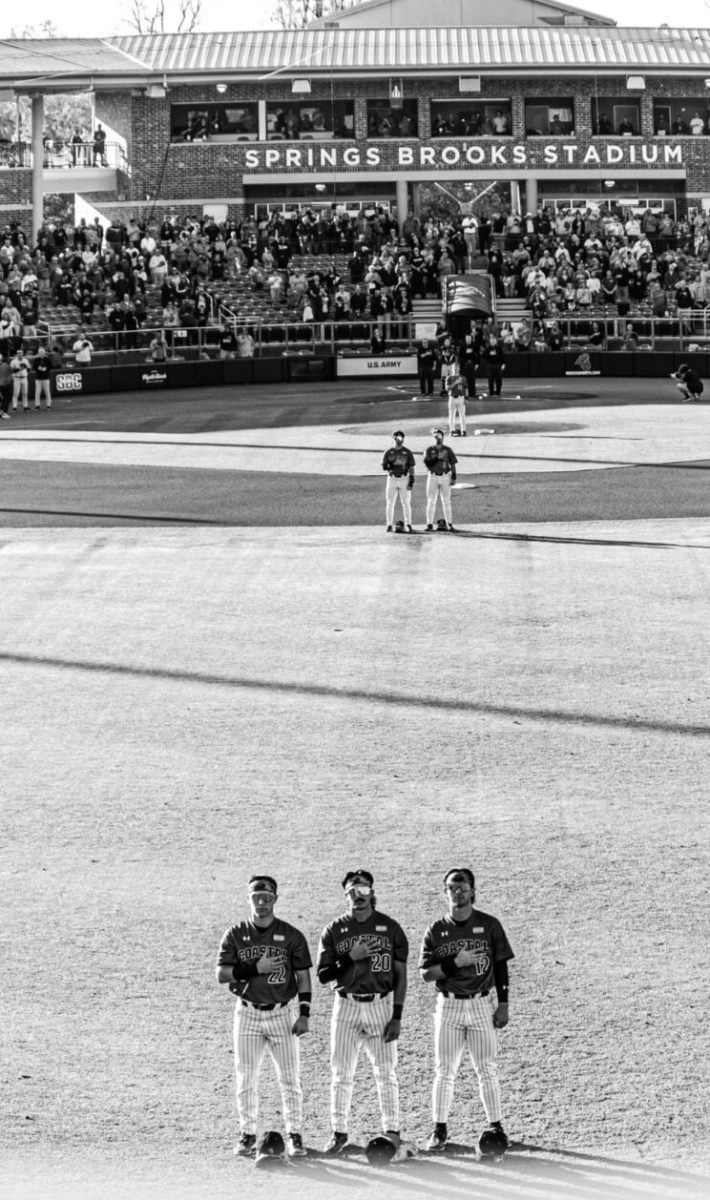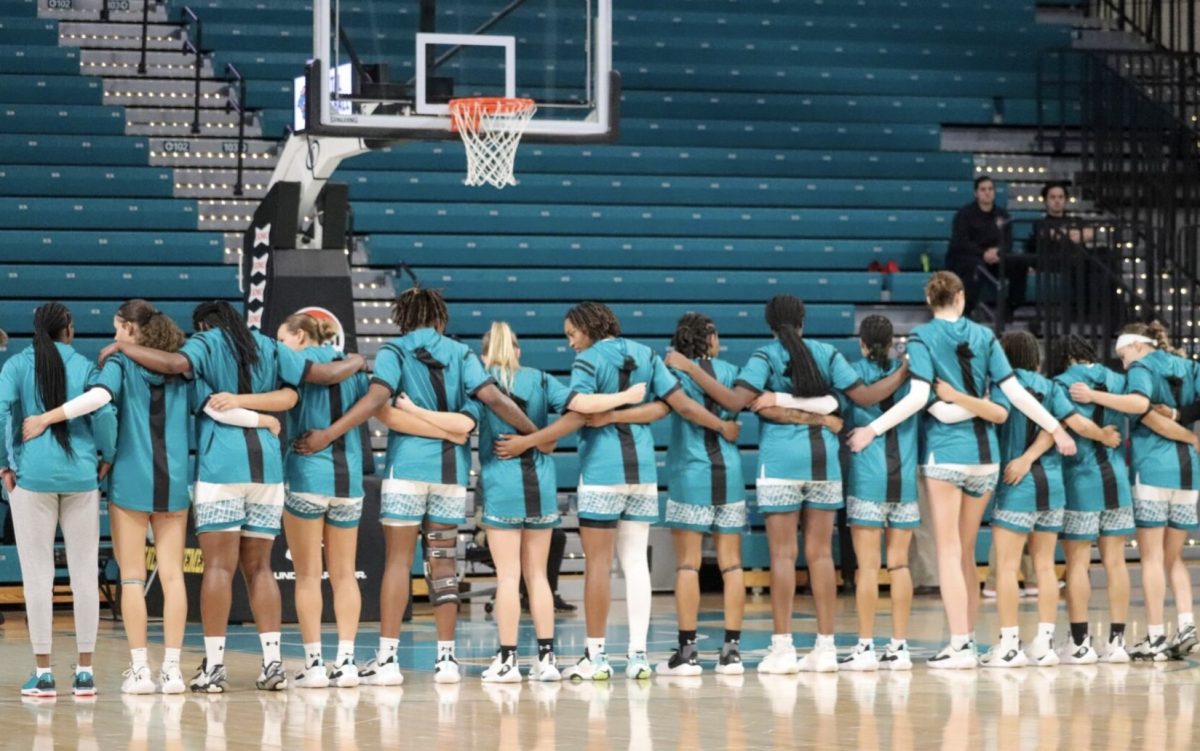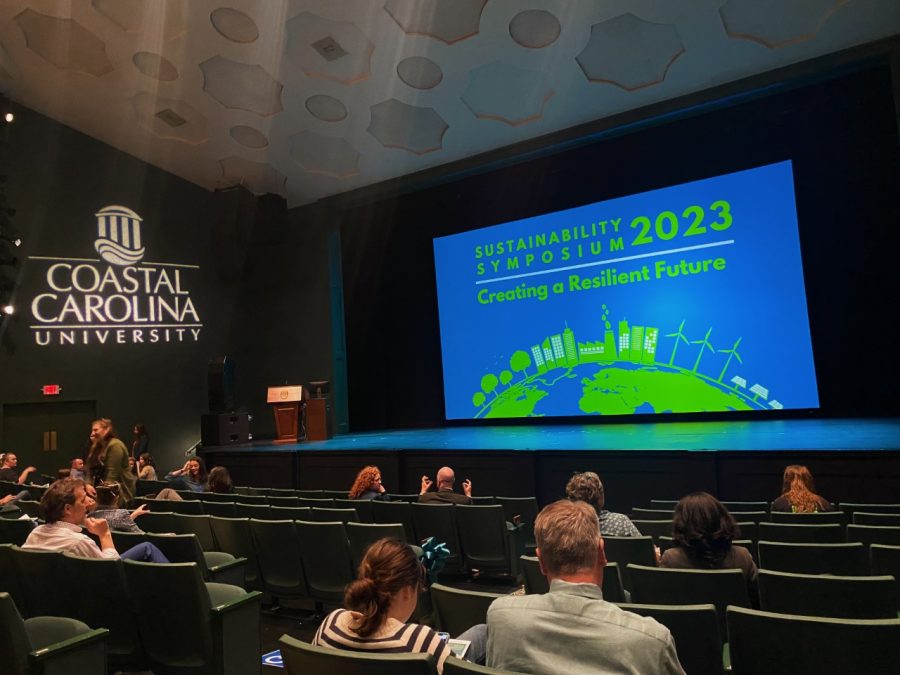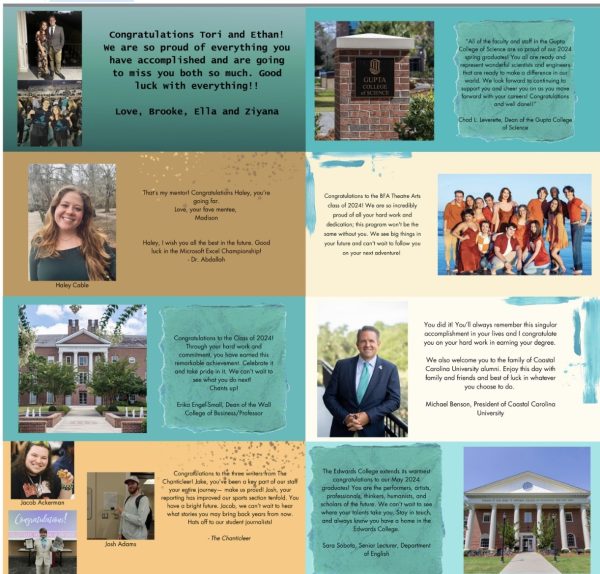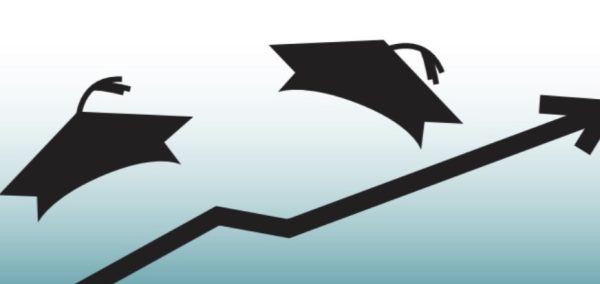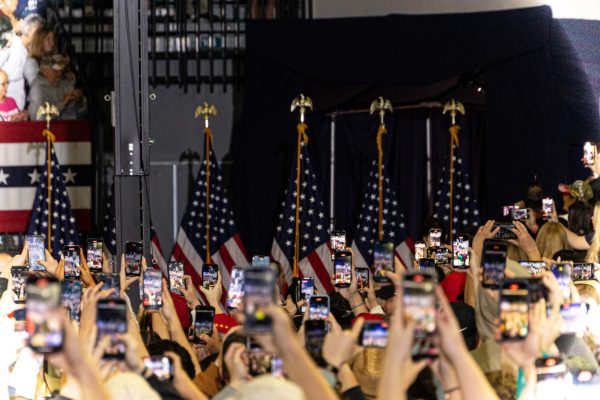One conversation can have lasting impacts
Creating a resilient future beyond campus
This year’s Sustainability Symposium addressed the uncertainties about climate change and what students can do to combat the issue.
The President’s Council for Sustainability and Coastal Resilience recently hosted their annual Sustainability Symposium. Community members from Conway, South Carolina, dedicated a day to discussing the various economic, environmental, and social impacts of climate change and methods for creating change. People who attended the event were able to network and explore how to ensure a more resilient future.
In the morning, students of various majors participated in an undergraduate research competition, which featured sustainable innovations and research. They were able to give both oral and poster presentations in the Lib Jackson Student Union. Following this, there was a panel discussion focused on both intersectional environmentalism and climate resilience that allowed students the opportunity to communicate with sustainable professionals.
“I enjoyed learning how to make a difference in my community and empowering others to care about the Earth as much as I do,” junior sustainability and coastal resilience major Liam Myers said.
To conclude the event, keynote speaker Katherine Hayhoe led a free presentation, “Mitigate, Adapt—or Suffer: Connecting Global Change to Local Impacts and Solutions” in Wheelwright Auditorium. Hayhoe is an atmospheric scientist who focuses on climate change and why the issue matters to the present generation.
She has received many accolades for her research, such as the American Geophysical Union’s Climate Communication Prize, being named the United Nations Champion of the Earth in Science and Innovation and included in the list of TIME Magazine’s 100 Most Influential People. On top of this, her TED Talk, “The most important thing you can do to fight climate change: Talk about it” received nearly 4 million views, and she recently published, “Saving Us: A Climate Scientists’ Case for Hope and Healing in a Divided World.”
Hayhoe coined the term “global weirding” to describe the increasingly unpredictable and intense weather occurring due to climate change. Only a few miles from campus, Springmaid Pier experienced 11 high tide flooding events in 2021, almost doubling the amount that had occurred in previous years.
Not only does the changing climate harm ecosystems, but it also leads to many financial challenges. This includes the increased costs to fix the damage after extreme weather events, decreased agricultural income, and the inability for some people to participate in outdoor activities, which brings in revenue for many towns.
In fact, National Public Radio found the U.S. spent around $165 billion on climate-related disasters.
Hayhoe went on to prove extreme climate change is not a natural occurrence and is mostly a result of anthropogenic actions. Hayhoe presented data that highlighted that the sun’s energy is decreasing and natural cycles, such as El Niño, do not create energy and only transport it.
According to a Yale climate opinion survey from 2021, 72% of the U.S. population believes the world is getting warmer. However, many people experience solution aversion because they simply do not know what to do or feel helpless.
Hayhoe said she believes talking openly about the changing climate and finding ways of getting people to care by relating the impacts of global warming to something they are interested in will make a tremendous difference. After her presentation, Hayhoe answered questions audience members submitted on their mobile devices throughout the presentation. During this time, she furthered her point about the importance of efficacy and the tremendous affects small changes can have.
To learn more about Hayhoe and ways to create a more resilient future, visit https://www.katharinehayhoe.com/ biography/.
